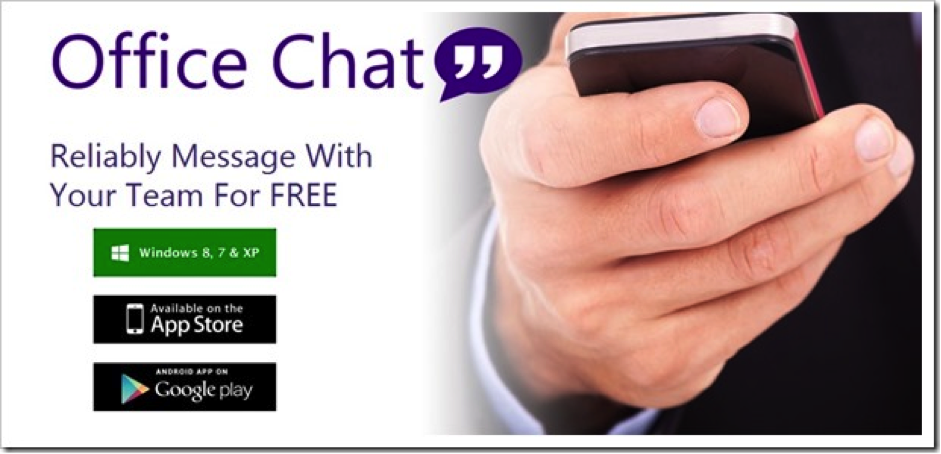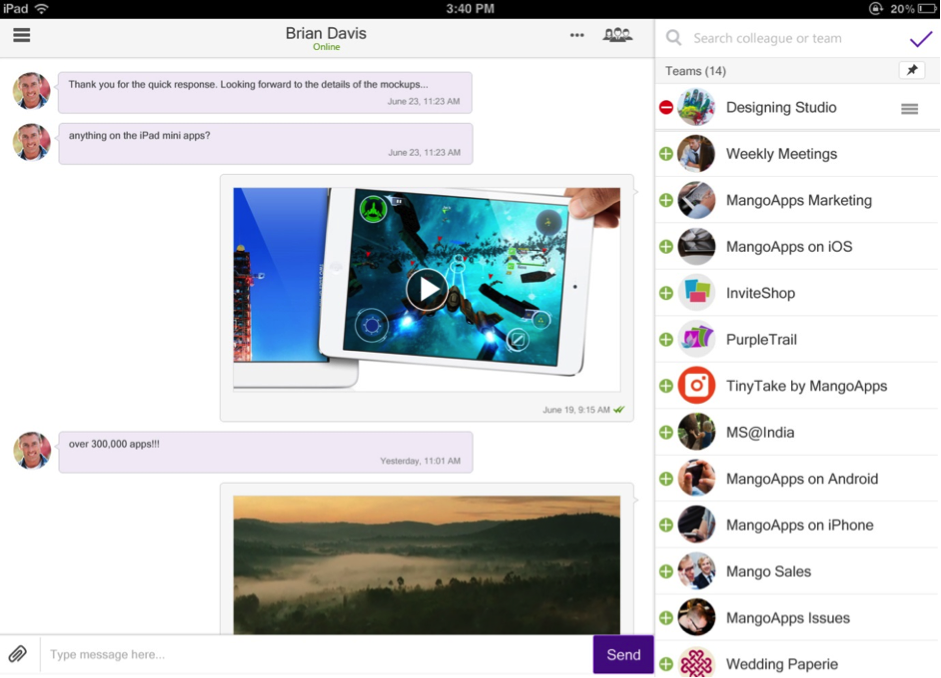 With Office Chat, the goal was simple; we wanted to create a product like Whatsapp, but for enterprises. This app should seamlessly work between devices (mobile and desktop) and could also be sold alongside the other suite of apps offered by MangoApps (an enterprise social collaboration network). Although MangoApps has an IM client tool integrated in it, Office Chat differentiates itself by bringing out the social flavour from MangoApps, thus, offering a similar and robust IM Client.
With Office Chat, the goal was simple; we wanted to create a product like Whatsapp, but for enterprises. This app should seamlessly work between devices (mobile and desktop) and could also be sold alongside the other suite of apps offered by MangoApps (an enterprise social collaboration network). Although MangoApps has an IM client tool integrated in it, Office Chat differentiates itself by bringing out the social flavour from MangoApps, thus, offering a similar and robust IM Client.
Integration: The Key to Success
 When we launched MangoApps, it was a Micro-blogging tool which had IM capabilities. As our customer base grew larger, we integrated modules that raised a lot of feature requests from our community of users. These feature requirements typically vary drastically from industry to industry. With over 8,500 customers from 28 countries, what has set MangoApps apart is its ability to integrate with almost 30+ applications such as SalesForce, SharePoint, Office 365, etc seamlessly. MangoApps architecture was built keeping in mind that any enterprise could plug and play with any existing solution that maybe used within the organization.
When we launched MangoApps, it was a Micro-blogging tool which had IM capabilities. As our customer base grew larger, we integrated modules that raised a lot of feature requests from our community of users. These feature requirements typically vary drastically from industry to industry. With over 8,500 customers from 28 countries, what has set MangoApps apart is its ability to integrate with almost 30+ applications such as SalesForce, SharePoint, Office 365, etc seamlessly. MangoApps architecture was built keeping in mind that any enterprise could plug and play with any existing solution that maybe used within the organization.
Office Chat gives companies a better way to communicate with colleagues and project members, by offering a solution that works across multiple devices. We have spent a lot of time in understanding the pain points of our customers and how our product could simplify their lives. The Office Chat team has also been dogfooding the app themselves by using the product internally, and providing relevant use cases to make the product simpler to use.
The motivation to use Office Chat is driven by the increased productivity from using a platform that allows the user to perform better because all the information is tightly integrated. As Product Managers we spend a lot of time demonstrating use cases to our customers. We have a public domain that allows any customer to sign up for free and kick off a Proof Of Concept (POC). It’s only after an entire team uses the platform do they see the value in using it, hence, we spend a lot of time evangelising the benefits of this social aspect inside organizations.
Deployment Models to cater to diverse organizations
Office Chat as a product fits into any industry. To cater to our diverse customers we segment our audience on the size of the organization and offer solutions based on the capacity of usage.
Public Cloud: This is a SaaS based model where a customer can purchase the app and can start using it immediately. We offer the App in three avatars, namely free, business and enterprise. The advantage of moving onto a more premium plan is that you will not have any limitations with integrations with 3rd party API’s or the number of users.
Private Cloud and On-Premise: This solution offers the customer the flexibility to choose his own hosting provider while deploying Office Chat. We also offer a range of on-premise solutions as well.
The Road Map
We spend a lot of time interacting with our customers. We try to understand the sort of challenges our customers face while adopting to the platform. When a customer requests for a feature, we usually take a step back to analyse if such a feature has been requested by other users to see if we can derive a pattern and based on this before we go about defining our product roadmap.
We are planning to integrate a slew of features (including real-time note pads) that increases the ability to collaborate between colleagues.
#PNHANGOUT is an on-going series where we talk to Product Managers from various companies to understand what drives them, the products they work on and the role they play in defining the products success.
If you have any feedback or questions that you would like answered in this series feel free to tweet to me: @akashj















